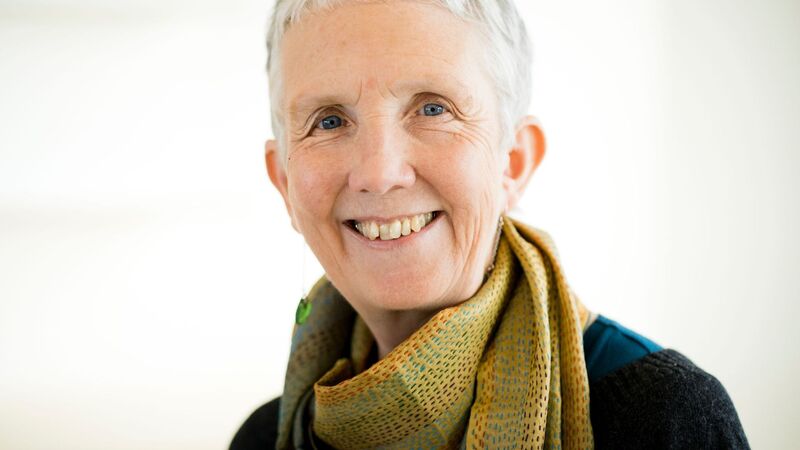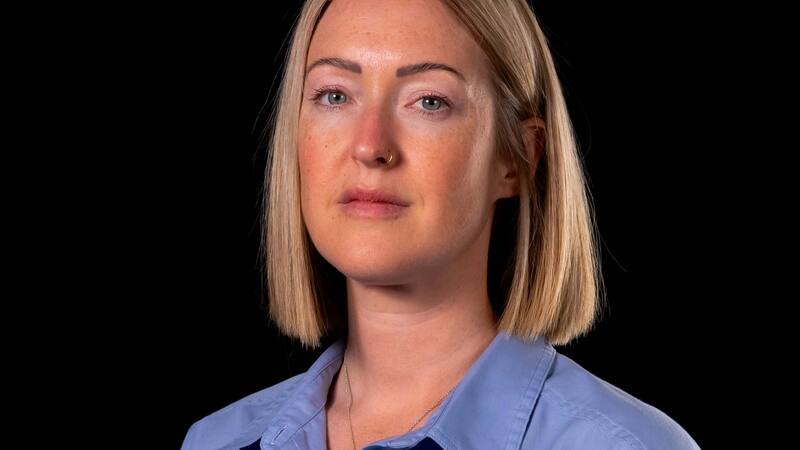You are viewing your 1 free article this month. Login to read more articles.
Bella Mackie | 'I just want to make people laugh, honestly'
 Caroline Carpenter
Caroline CarpenterCaroline is deputy features editor at The Bookseller and chair of the YA Book Prize, as well as being a co-host of children's book radio ...more
Bella Mackie’s jump to fiction, following her hit mental health title Jog On, sees an antiheroine embark on a ’romp’ of a killing spree

Caroline is deputy features editor at The Bookseller and chair of the YA Book Prize, as well as being a co-host of children's book radio ...more
A darkly comedic story about class, family and murder might seem like a surprising premise for the début novel from Bella Mackie, whose previous non-fiction titles Jog On and Jog On Journal (William Collins) were focused on running and mental health. But the journalist and author reveals that How to Kill Your Family’s subject matter reflects one of her lifelong interests. “I got weirdly obsessed with murder when I was very small, and for my ninth birthday, I got a subscription to a true crime murder magazine,” she confesses.
So, although she was approached by several publishers to write something similar to Jog On after it was published and it did “surprisingly well”, she decided to try her hand at a “funny crime caper” instead. The first three chapters were written in just a month, with The Borough Press buying the book on a partial manuscript, along with a second novel, in a five-figure deal.
I just want to make people laugh, honestly. Some people might think it’s a thriller, or a gory crime book, and it’s really not. It’s a romp. Hopefully it’ll crack some smiles
How to Kill Your Family tells the story of 28-year-old Grace Bernard, who plots to avenge her dead mother by killing off the family of her millionaire father, who abandoned them both. But from the opening we learn that she is in prison for a crime she did not commit. Mackie compares her narrator to the “ballsy and vengeful” female protagonists of “Killing Eve” and “Promising Young Woman”, describing her voice as “completely unlikable and unvarnished”. The author found it “really fun” to explore this darker side of human nature, saying: “I think women spend a lot of their time trying to be amenable and nice and all the things that women are expected to be—nurturing and caring—and [Grace] just isn’t. That’s just who she is. She’s incredibly unapologetic, and comfortable in it.”
As well as murder, class is another fixation of Grace’s (and Mackie’s) throughout the book, best summed up by her assessment of her best friend’s performatively “woke” middle-class family, who take her into their home when she has nowhere else to go. “The Latimers are lovely people, and I was glad to be living there, but if I embraced their way of life too enthusiastically I’d risk ending up reading the Guardian, working in the arts, and buying people organic British wine for Christmas. A lovely warm bath of a life, apart from the embedded guilt and the glaring hypocrisy... but totally pointless,” she writes. This is all the more tongue-in-cheek because Mackie was formerly a commissioning editor at the Guardian, and her father Alan Rusbridger was the newspaper’s editor-in-chief for a decade. She admits: “I’m fascinated by the British micro-classes... I am obviously incredibly comfortably privileged middle-class myself, so I find middle-class hypocrisy is really interesting and fun to explore.”
Love to hate
It is not just middle-class society that Grace is disdainful of. She also turns her nose up at the highly privileged world of her father’s family and their flashy displays of wealth, as well as looking down on the underprivileged women she is imprisoned with. Mackie says: “The thing about Grace is, she’s a terrible person. She’s mocking of the people she’s in jail with and looks down on them. She looks down on her father and his gaucheness, and she mocks the middle-class family that she lives with as well. She’s terrible to everyone.”
Despite this, Mackie notes that many readers seem to root for her antiheroine. She theorises: “I think women do like to see women being terrible, because in real life, we’re not supposed to be. Seeing a woman behave like that is really exhilarating for other women.” She also makes it clear that Grace’s behaviour is not random or nihilistic. “She’s doing this for a reason. She hasn’t known happiness and stability, and that is because of things that were done to her mother. She’s been left in a situation where she has nothing, and the only thing she feels like she can do is take her revenge.”
Grace’s revenge takes the form of some rather inventive killing methods, but Mackie “didn’t want to write a gory, grisly book”. She expands: “I wasn’t interested in things where she gets her hands very dirty. I knew that I wanted it to be kind of fantastical... None of them are realistic ways to kill someone. The other thing was that I wanted them all to be something that, at a stretch, could look like an accident.” She had to carry out unusual research to plan these murders, including speaking to a tech whizz about the future of smart houses and finding out about frog venom and sex parties. She also spoke to an ex-prison governor to help her write the prison scenes, though she says: “It’s probably not as distressing and as bleak as prison is really. I made sure that the basic details were fair enough and then from there, I used a bit of artistic licence.” One part of the book, centring around an online influencer, was loosely inspired by Mackie’s own life. She explains: “My husband [broadcaster and author Greg James] gets sent quite a lot of free stuff that he’s not asked for. I thought, ‘If you’re stupid enough or vain enough that you’re just unquestioningly taking stuff that people offer you, what could that end up looking like?’”
Through the lockdown
Writing the novel took longer than Mackie expected, as it “dragged on into the pandemic”, and she found writing fiction “really different, and in lots of ways harder” than non-fiction. She continues: “There were bits of it that I loved writing and bits of it where I thought, ‘I don’t know what I’m doing’. The editing process is when I started to understand it better. We rejigged a lot of the early stuff chronologically, and then it sort of unfurled itself to me.” In fact, she ended up rewriting the book’s finale, as she was “really dissatisfied” by her original ending and “wanted to leave it as more of a sucker-punch to the reader”. The revised ending is left relatively open, but when I ask if she is planning a sequel, she says: “I don’t know... I might have an idea in five years’ time, but I think I like where it’s left. I like the fact that it ends in a place where she’s in a bit of a quandary.”
Mackie has not begun work on her next novel yet, though she has a couple of ideas and feels she needs “to get writing now”. She is currently promoting How to Kill Your Family, doing podcast appearances and book-group Zoom events, but she laments the lack of physical events and festivals usually associated with a book’s launch, saying: “That was the most fun part of Jog On, going to speak to people. There is something wonderful about being able to go to local bookshops and you do miss out on that experience.”
Considering her hopes for her first foray into novel-writing, she has relatively modest ambitions, telling me: “I just want to make people laugh, honestly. Some people might think it’s a thriller, or a gory crime book, and it’s really not. It’s a romp. Hopefully it’ll crack some smiles.”
Book extract
Without any attempt on my part at an accurate explanation, my case has already become a notorious one. And ironically, that is without anyone knowing about my real crimes. The justice system in this country is a joke, and there is nothing which illustrates that more than this one sentence: I have killed several people (some brutally, others calmly) and yet I currently languish in jail for a murder I did not commit.
The crimes I did orchestrate, if known about, would ensure that I was remembered for decades, perhaps even centuries – if the human race manages to hold on for that long. Dr Crippen, Fred West, Ted Bundy, Lizzie Borden and me, Grace Bernard. Actually that displeases me somewhat. I’m not an amateur or an imbecile. I’m someone who, if you saw me in the street, you’d gaze at admiringly.








